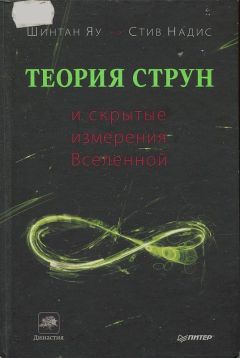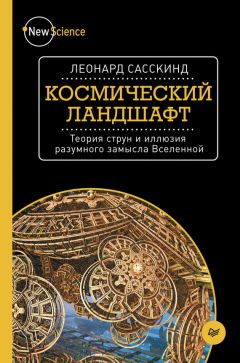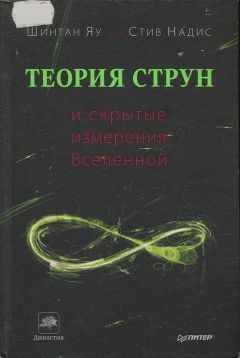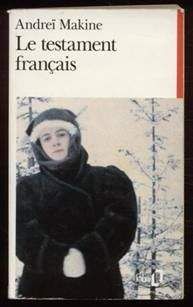185
Kachru, interview with author, September 8, 2007.
Liam McAllister (Princeton University), interview with author, February 20, 2007.
Joe Polchinski (University of California, Santa Barbara), interview with author, February 6, 2006.
David Gross, quoted in Dennis Overbye, “Zillions of Universes? Or Did Ours Get Lucky?” New York Times, October 28, 2003.
Burton Richter, “Randall and Susskind,” letter to editor, New York Times, January 29, 2006.
Leonard Susskind, The Cosmic Landscape (New York: Little Brown, 2006), pp. 354–355.
Tristan Hubsch (Howard University), interview with author, November 7, 2008.
Mark Gross (Stanford University), interview with author, October 31, 2008.
Gross, interview with author, September 19, 2008.
Miles Reid (University of Warwick), interview with author, August 12, 2007.
Allan Adams (MIT), interview with author, October 31, 2008.
Gross, interview with author, October 31, 2008.
Adams, interview with author, October 31, 2008.
Tristan Hubsch, e-mail letter to author, December 15, 2008.
Melanie Becker (Texas A&M University), interview with author, February 1, 2007.
Andrew Strominger (Harvard University), interview with author, February 7, 2007.
Li-Sheng Tseng (Harvard University), interview with author, December 17, 2008.
Becker, interview with author, February 1, 2007.
Polchinski, interview with author, January 29, 2007.
Strominger, interview with author, August 1, 2007.
Burt Ovrut (University of Pennsylvania), interview with author, February 2, 2007.
Geoffrey Landis, “Vacuum States,” Asimov's Science Fiction 12 (July 1988): 73–79.
Andrew R. Frey, Matthew Lippert, and Brook Williams, “The Fall of Stringy de Sitter,” Physical Review D. 68 (2003).
Sidney Coleman, “Fate of the False Vacuum: Semi-classical Theory,” Physical Review D. 15 (May 15, 1977): 2,929-2,936.
Steve Giddings (University of California, Santa Barbara), interview with author, September 24, 2007.
Matthew Kleban (New York University), interview with author, January 17, 2008.
Dennis Overbye, “One Cosmic Question, Too Many Answers,” New York Times, September 2, 2003.
Andrei Linde (Stanford University), interview with author, December 27, 2007.
Giddings, interview with author, October 17, 2007.
Shamit Kachru (Stanford University), interview with author, September 18, 2007.
Linde, interview with author, December 27, 2007.
Henry Tye (Cornell University), interview with author, September 12, 2007.
Linde, interview with author, January 10, 2008.
S. W. Hawking, “The Cosmological Constant,” Philosophical Transactions of the Royal Society A. 310 (1983): 303–310.
Kleban, interview with author, January 17, 2008.
Steven B. Giddings, “The Fate of Four Dimensions,” Physical Review D. 68 (2003).
Geoffrey Landis, “Vacuum States,” Asimov's Science Fiction 12 (July 1988): 73–79.
Andrew R. Frey, Matthew Lippert, and Brook Williams, “The Fall of Stringy de Sitter,” Physical Review D. 68(2003).
Sidney Coleman, “Fate of the False Vacuum: Semi-classical Theory,” Physical Review D. 15 (May 15, 1977): 2,929-2,936.
Steve Giddings (University of California, Santa Barbara), interview with author, September 24, 2007.
Matthew Kleban (New York University), interview with author, January 17, 2008.
Dennis Overbye, “One Cosmic Question, Too Many Answers,” New York Times, September 2, 2003.
Andrei Linde (Stanford University), interview with author, December 27, 2007.
Giddings, interview with author, October 17, 2007.
Shamit Kachru (Stanford University), interview with author, September 18, 2007.
Linde, interview with author, December 27, 2007.
Henry Tye (Cornell University), interview with author, September 12, 2007.
Linde, interview with author, January 10,2008.
S. W. Hawking, “The Cosmological Constant,” Philosophical Transactions of the Royal Society A. 310 (1983): 303–310.
Kleban, interview with author, January 17, 2008.
Steven B. Giddings, “The Fate of Four Dimensions,” Physical Review D. 68 (2003).
Текст этого и последующих комментариев до конца Главы 12 отсутствует в издании. Похоже, что и комментарии с начала этой главы неверны (прим. Vadi)
То же.
То же.
То же.
То же.
То же.
То же.
То же.
То же.
То же.
То же.
То же.
То же.
То же.
То же.
Peter Goddard, ed., Paul Dirac: The Man and His Work (New York: Cambridge University Press, 1998).
Eugene Wigner, “The Unreasonable Effectiveness of Mathematics in the Natural Sciences,” Communications in Pure and Applied Mathematics 13 (February 1960).
Chen Ning Yang, S. S. Chem: A Great Geometer of the 20th Century (Boston: International Press, 1998), p. 66.
Robert Osserman, Poetry of the Universe (New York: Anchor Books, 1996), pp. 142–143.
Richard P. Feynman, The Character of Physical Law (New York: Modern Library, 1994), p. 50.
Michael Atiyah, quoted in Patricia Schwarz, “Sir Michael Atiyah on Math, Physics and Fun,” The Official String Theory Web site, http://www.superstringtheory.com/people/atiyah.html.
Jim Holt, “Unstrung,” New Yorker, October 2, 2006, p. 86.
Michael Atiyah, “Pulling the Strings,” Nature 438 (December 22–29, 2005): 1,081.
Robert Mills, “Beauty and Truth,” in Chen Ning Yang: A Great Physicist of the 20th Century, ed. Shing-Tung Yau and C. S. Liu (Boston: International Press, 1995), p. 199.
Henry Tye (Cornell University), e-mail letter to author, December 19, 2008.
Brian Greene, interview by Ira Flatow, “Big Questions in Cosmology,” Science Friday, NPR, April 3, 2009.
К. C. Cole, “A Theory of Everything,” New York Times Magazine, October 18, 1987.
Nicolai Reshetikhin (University of California, Berkeley), interview with author, June 5, 2008.
Robbert Dijkgraaf (University of Amsterdam), interview with author, February 8, 2007.
Brian Greene, The Elegant Universe (New York: Vintage Books, 2000), p. 210.
Andrew Strominger (Harvard University), interview with author, August 1, 2007.
S. Ramanujan, “On Certain Arithmetic Functions,” Transactions of the Cambridge Philosophical Society 22 (1916): 159–184.
Lothar Goettsche, “A Conjectural Generating Function for Numbers of Curves on Surfaces,” November II, 1997, arXiv.org, Cornell University archives, http://arxiv.org/PS_cache/alg-geom/pdf/9711/9711012vl.pdf.
Ai-Ko Liu, “Family Blowup Formula, Admissible Graphs and the Enumeration of Singular Curves, I,” Journal of Differential Geometry 56 (2000): 381–579.
Bong Lian (Brandeis University), interview with author, December 12, 2007.
Michael Atiyah, “Pulling the Strings,” Nature 438 (December 22–29, 2005): 1,082.
Glennda Chui, “Wisecracks Fly When Brian Greene and Lawrence Krauss Tangle Over String Theory,” Symmetry 4 (May 2007): 17–21.
Sean Carroll, “String Theory: Not Dead Yet,” Cosmic Variance blog, Discover online magazine, May 24,2007, http://cosmicvariance.com.
Edward Witten, quoted in К. C. Cole, “A Theory of Everything,” New York Times Magazine, October 18, 1987.
Ibid.
Alan Guth (MIT), interview with author, September 13, 2007.
Brian Greene, The Elegant Universe (New York: Vintage Books, 2000), p. 261.
Max Tegmark (MIT), interview with author, October 23, 2007.
Faye Flam, “Getting Comfortable in Four Dimensions,” Science 266 (December 9, 1994): 1, 640.
Cumrun Vafa (Harvard University), interview with author, January 19, 2007.
Robbert Dijkgraaf (University of Amsterdam), interview with author, February 8, 2007.





